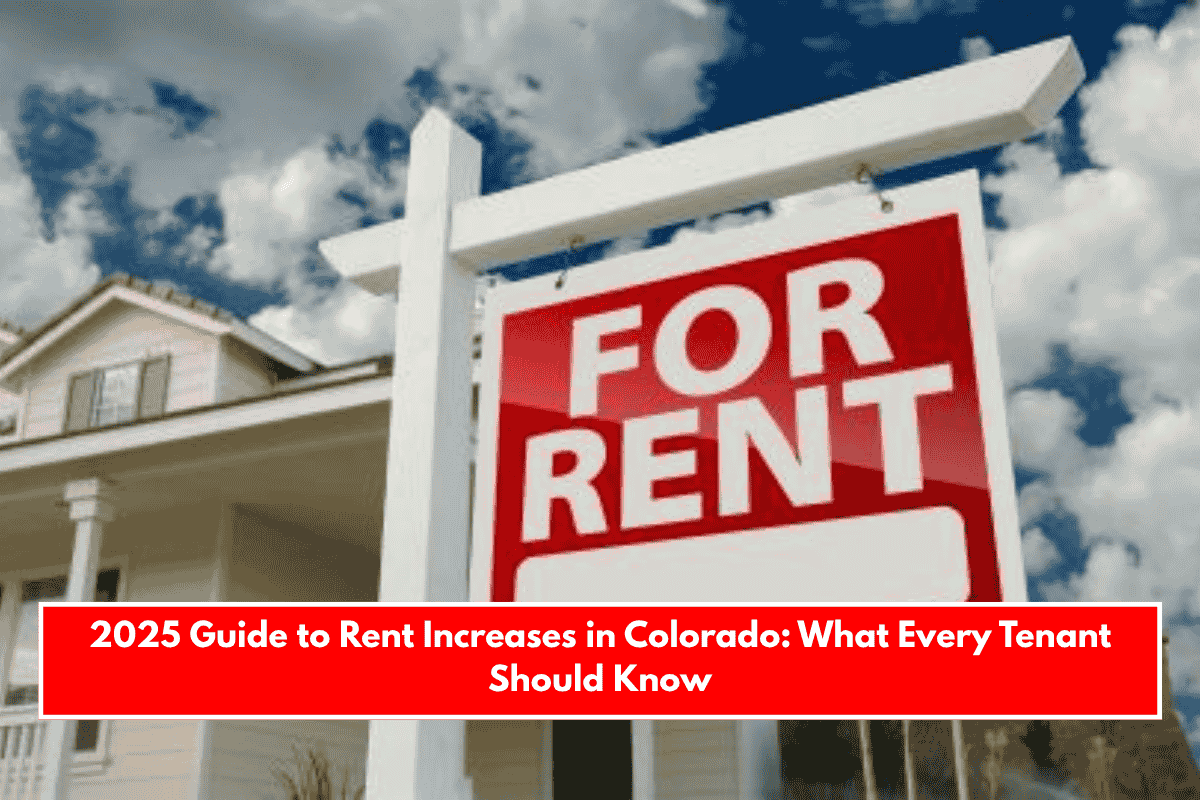Colorado’s rental landscape in 2025 remains dynamic, with no statewide rent control but several crucial laws and procedures that every tenant should understand. Here’s a comprehensive guide to help you navigate rent increases, protect your rights, and plan your housing future.
No Statewide Rent Control or Caps
- Colorado does not have statewide rent control. There is no legal cap on how much a landlord can increase your rent, and cities or counties are prohibited from enacting their own rent control ordinances.
- Landlords can raise rent by any amount the market will bear, provided they follow the state’s notice and frequency requirements.
Notice Requirements for Rent Increases
- Written Notice Is Mandatory: Landlords must provide advance written notice before any rent increase.
- If the increase is less than 10%: At least 30 days’ notice is required.
- If the increase is 10% or more: At least 60 days’ notice must be given.
- The notice must specify the new rent amount and the exact date the increase takes effect. Verbal notices or incomplete notices are not valid under Colorado law.
Frequency of Rent Increases
- Once Per Year Limit: Landlords may only increase rent once every 12 months for the same tenant, regardless of whether the lease is month-to-month or a fixed term.
- This rule provides tenants with a degree of predictability and helps with budgeting, as multiple increases within a single year are not allowed.
Timing and Lease Protections
- During a Lease: If you have a fixed-term lease (e.g., a one-year lease), your landlord cannot raise your rent until the lease ends—unless your lease specifically allows for mid-term increases.
- Month-to-Month Leases: Landlords must still provide the required written notice (30 or 60 days, depending on the increase) before raising rent.
Exceptions and Special Cases
- Subsidized Housing: Rent increases in Low-Income Housing Tax Credit or Section 8 properties are subject to additional restrictions and administrative approval.
- Mobile Home Parks: Special rules apply, including a 60-day notice requirement and justification for increases. Rent cannot be raised if the park lacks a current, active license.
- Discrimination Prohibited: Landlords cannot raise rent in a way that discriminates against protected classes (e.g., based on race, marital status, source of income, or veteran status).
Recent Legislative Activity
- Efforts to introduce rent control or cap increases have failed in the Colorado legislature, and the statewide ban remains in place.
- New laws in 2025 have strengthened tenant protections in other ways, such as requiring “just cause” for evictions and clarifying lease renewal procedures.
How to Respond to a Rent Increase
- Check Your Lease: Review your lease for any clauses about rent increases.
- Ensure Proper Notice: Confirm that your landlord provided written notice with the correct lead time.
- Negotiate: If the increase feels excessive, consider negotiating with your landlord—many prefer to keep reliable tenants rather than risk a vacancy.
- Seek Help: If you believe your landlord did not follow the law, contact the Colorado Division of Housing or seek legal aid.
Key Takeaways for Tenants
- There is no limit to how much rent can be increased, but only one increase per 12 months is allowed.
- Written notice is required: 30 days for increases under 10%, 60 days for 10% or more.
- No rent increases during a fixed-term lease unless the lease allows it.
- Discriminatory or retaliatory increases are illegal.
- Local ordinances may add protections, especially in Denver, so check city-specific regulations.
Colorado’s rental laws in 2025 give landlords significant flexibility but also provide tenants with notice and frequency protections. By understanding your rights and the legal requirements, you can better prepare for and respond to rent increases, ensuring a fair and stable housing experience in the Centennial State.
Sources:
- https://www.doorloop.com/laws/colorado-rent-control-laws
- https://www.coloradorpm.com/february-2025-the-colorado-housing-coalition-is-actively-reviewing-proposed-legislation-for-the-2025-session/
- https://www.tjcrealestate.com/blog/2025-rental-laws/
- https://www.steadily.com/blog/rent-increase-laws-regulations-colorado
- https://www.hemlane.com/resources/colorado-rent-control-laws/













